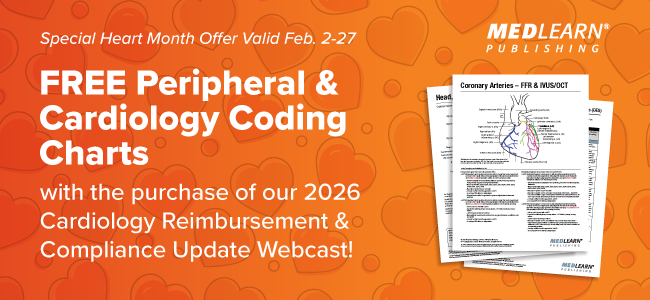CORRECTION: This story has been corrected. There was no Meaningful Use Act. The American Reinvestment & Recovery Act (ARRA) was enacted on Feb. 17, 2009. ARRA included many measures to modernize our nation’s infrastructure, one of which was the “Health Information Technology for Economic and Clinical Health (HITECH) Act”. We apologize for the error.
Documentation and coding audits can reveal deficits within an organization’s EHR.
What is your organization’s single most important source of information?
With the onset of the Meaningful Use Act, there was a massive migration to electronic health records (EHRs). Like most new pathways in life, this provided unique, groundbreaking advantages. However, there is also a fair share of challenges related to EHRs that are still alive and well in healthcare. The question remains, “is your organization’s EHR a source of truth?”
At the genesis of implementing an EHR, it was not uncommon for an organization to have more than 200 disparate systems. In other words, the EHR housed components of a patient record, while other systems housed equally relevant documents potentially impacting patient care. With the myriad of systems having to be accessed, combined with deadline requirements, the issue of missed data was inevitable.
Nonetheless, over the years, the EHR has settled into being acknowledged as the official patient record. Eleven years after meaningful use implementation and organizations continue to struggle to adopt a single source of truth.
With ever-expanding healthcare technology, combined with the monumental task of implementing and maintaining an EHR, relevant source documents or interface considerations may find themselves outside the mainframe. This impacts patient care, coding, billing, and reimbursement. Regardless of the specifics involved with adopting an EHR, it’s essential for organizations to conduct an internal pulse check on systems and processes.
System upgrades, necessary yet painful, impact the current and future state of the information provided in the EHR. Having a comprehensive understanding of the potential impacts is critical to recognize how they will affect your organization. For instance, consider a coding quality review, one of which is a reconciliation of the documents, interfaced with computer-assisted coding (CAC), compared to the EHR. If one is working directly from CAC, it is prudent to reconcile the information against the documents housed in the EHR. It is not uncommon for an incomplete migration of documents to occur. The result is that documents affecting patient care, coding, and reimbursement are left unseen.
Continue to be diligent in putting into practice checks and balances, together with internal audits, to ensure that technologies used in your organization are in sync with your source of truth. An audit can easily and efficiently help to uncover some of the following issues:
- Documents located in the EHR are not always included in CAC. Therefore, relevant information contained in these documents is not considered for reporting, coding, and reimbursement. This has a significant impact on the data reported to outside agencies, linear reporting within an organization, and reimbursement. Procedure documents having a $10,000-per-claim impact on reimbursement for select inpatient encounters can often go unnoticed, due to the assumption that the EHR is the core document.
- Codes reported by a coder may not update or integrate within an EHR. This oversight is easily discernable when conducting a coding audit. Codes contained in the EHR may not always be reflected in what is billed. This especially holds true for new adopters of EHRs, in particular as healthcare moves to an integration system.
Today’s healthcare environment lends itself to consistent validation of technology and its relationship with a single source of truth. Data integrity is in the driver’s seat for today’s reimbursement models, as well as future reimbursement decisions. Organizations that have invested efforts into building a single source of truth, with continual management and data cleansing, will be much better positioned when the inevitable regulations on data requirements are implemented. Those that rely on their EHR as an “official patient record,” without thoughtful authentication, monitoring, and audits, will eventually pay the price in mounting expenses from inefficiency, as well as the risk of liability from inadequate data.
Ultimately, an EHR is only as good as the data within it. When you have accurate, usable data inside your EHR system, it improves efficiency and helps provide a comprehensive picture of a patient’s health.
It may be time to take a pit stop and re-examine the integrity of your organization’s data and where it resides.
Programming Note:
Listen to Susan Gatehouse report this story live during Talk Ten Tuesdays today, 10-10:30 a.m. EST.























